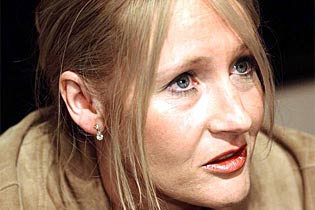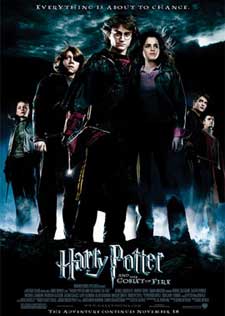
JK Rowling is concerned at the two-tier poverty level in Edinburgh. Picture: Phil Wilkinson
The bullet-proof barrier between city's rich and poor
DAVID ROBINSON BOOKS EDITOR
JK ROWLING has written about her experience of grinding poverty and nights when vandals, burglars and drunks would make her life a misery.
In a heartfelt introduction to a book whose proceeds will go to fighting social exclusion in Scotland's capital, the best-selling writer gives a rare insight into what her life was like on the poverty line as a single mother in Edinburgh - "the 'rags' part of what might as well be called my Cinderella story".
Before Harry Potter took off, she reveals, she had first-hand experience of what poverty brought in its wake. In Leith's South Lorne Street, where she and her daughter lived for three years, "a group of local boys amused themselves on dull nights by throwing stones at my two-year-old's bedroom window".
On one occasion she had to shove a drunk out into the corridor after he had tried to force open her front door; another time she had to cope with being broken into at night while she and her daughter were both in bed.
Rowling writes about her memories of her early years in Edinburgh in the introduction to One City, which will be launched at Edinburgh Festival Theatre on Friday next week in what is claimed to be Scotland's biggest-ever literary event.

It also contains three stories by Edinburgh's other world-famous authors - Ian Rankin, Alexander McCall Smith and Irvine Welsh - who will all be interviewed by the BBC's Kirsty Wark about their work.
Money from the event - which is sponsored by The Scotsman - and from sales of the book will go towards One City Trust, the charity set up last year with the aim of helping people in the poorest parts of Edinburgh enjoy the fruits of the city's economic and cultural boom.
The cause is close to Rowling's heart. When she arrived in Edinburgh in December 1993, a single mother with hardly any money and no job to go to, she soon became aware of the barriers, "invisible and inflexible as bullet-proof glass", between the rich and those, like her, on the fringes of society.
She had not, she reveals, ever intended to stay in the city - it was just meant to be a Christmas visit to her sister.
At the time she had far more friends south of the Border and she imagined that she would soon be back among them.
That winter, though, Edinburgh was "snow-covered, almost dauntingly beautiful and austerely unfamiliar".
And when the thaw came, it still had enough attractions: certainly her daughter loved toddling around the Museum of Scotland and Princes Street Gardens.
"I stumbled along in her wake, wondering what was going to happen to us, almost as shell-shocked at finding myself in this strange new city as I was to be a single mother, broke and jobless." Even when she moved out of the "glorified bedsit" organised for her by the social services in 28 Gardiner Terrace, Edinburgh, to live in the flat in Leith, which she furnished thanks to the help of friends, that sense of being excluded never left her.
"Violence, crime and addiction were part of everyday life in that part of Edinburgh," she writes. "Yet barely ten minutes away by bus was a different world, a world of cashmere and cream teas and the imposing facades of the institutions that make this city the fourth-largest financial centre in Europe.
"I felt in those days as though there was an abyss separating me from those carrying briefcases and Jenners bags - and, in truth, there was."
Rowling's subsequent career crossed that abyss in the most spectacular way: even before Harry Potter and the Half-Blood Prince went on sale in July, her estimated personal wealth of £500 million was twice that of the Queen.
It is easy for many to forget how recently Rowling broke out of that poverty trap.
But far from forgetting about it herself, Rowling says that fighting its insidious effects should be a top priority.
Misery, despair and mental and physical health problems multiply among the socially excluded, she says. Yet every city would benefit if all its children were able to reach their potential, if its workers were able to find jobs and all its citizens were able to avoid being isolated.
In Edinburgh - where, despite its affluent image, one in five children grows up in a household below the income-support level - One City Trust is working out how to help marginalised people be more fully involved in the city's life. This group includes the poor, the disabled, ethnic minorities or "people who feel isolated from others and from the benefits of the city".
In her early years in the city, Rowling admits, that last definition fitted her perfectly.
She has written about the impact of poverty on her life once before.
In the foreword to Magic, a book of short stories published three years ago to raise money for the National Council for One Parent Families, she described how she hated relying on charity shops for her daughters' clothes and was jealous at the way other parents could provide new toys for their children.
Once, she wrote, she was so poor that, when she was tuppence short for a tin of baked beans at the supermarket checkout, "I had to pretend that I had mislaid a £10 note for the benefit of the bored girl at the till." She would also visit Mothercare just because their baby-changing rooms offered a small supply of free nappies.
Despite all this, she reveals in One City, even before Harry Potter made her famous she had come to love Edinburgh.
She has now lived in the city longer than she has ever lived anywhere in her life.
"I am proud to live here," she concludes, "and proud that my home city is committed to becoming a more inclusive place.
"One City seeks to unify: I cannot think of a better goal, for Edinburgh, Scotland or the world."








No comments:
Post a Comment